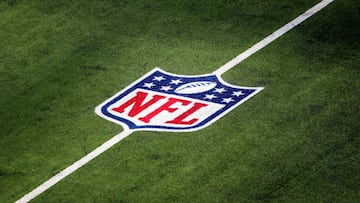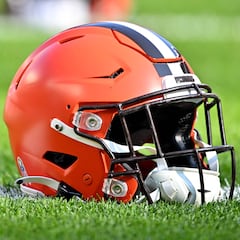What happens if an NFL team goes over the salary cap?
In the big-money world of the NFL, there are numerous rules used to govern the expenditure of teams, but what happens when they cross the line?


Before getting into an explanation of the consequences involved should a team go over the league’s salary cap, it’s important to understand what it is and how it works. So, let’s get into it.
What is the NFL’s salary cap?
It would be fair to say that the NFL’s season and how it all plays out is rooted in the salary cap, which in itself determines the amount of funds available to each team when it comes to signing players. The NFL’s salary cap is established in the Collective Bargaining Agreement (CBA), which as you likely know is agreed upon by the league and NFLPA. In comparison with the NBA and MLB, the NFL has actually made great strides in balancing the landscape, such that all teams essentially have an equal chance every year.
Now, it’s important to note that the salary cap - in theory - increases each season and has done so every year since 1994. In principle, the idea is simple: As revenue increases, the salary cap follows suit. Of course, 2020 was a year that offered an exception due to the global pandemic, as the NFL saw its revenue drop from $15.2 billion in 2019 to $12.2 billion. Things were back on track in 2021, however, when the league enjoyed a jump to $17.19 billion, a figure that rose to $18.6 billion last year.
How is the salary cap calculated?
Based on a complicated equation, the league essentially measures its revenue or at least certain aspects of it, and then allocates roughly 48% of it to ‘Player Costs.’ That player cost figure consists of two things primarily: Player benefits and player salaries. The latter of those two is what falls under the umbrella of the ‘Salary Cap.’ If we use 2020 as an example Player Cost number was roughly $242.9 million, while the Salary Cap was $198.2 million. The difference between those numbers ($44.7 million) was in player benefits, a bracket that includes a pension plan, health insurance, disability insurance, tuition assistance, and other benefits available to players that go beyond their actual salaries.
So, what happens if a team exceeds the salary cap?
Related stories
Quite simply, they are punished. The normal practice is that the league fines teams upwards of $5 million for each infraction that is found. On the other hand, there are more serious sanctions that can occur should the team in question be found guilty of extensive violations. These can include the loss of draft picks and even the voiding of player contracts, or even the team itself being banned from signing any additional players. Incidentally, teams are given a little more freedom during the offseason i.e. longer timeframes to get below the limit.
It's funny how certain teams don't have a salary cap. @nfl is turning into @mlb.@Buccaneers are paying a Superbowl price tag but that's non existent for Philly huh. #SCRIPTED https://t.co/C3t2vgaOn8
— Michael (@Michael39387168) November 29, 2023
Yet, there is one way that teams can increase their Salary Cap space and that’s by carrying over any unused Cap space from the previous year. To be clear, teams must notify the league of the amount they wish to carry over from one year to the next by 4:00 p.m. on the day following the team’s final regular season game. If you didn’t know this rule was added to the CBA of 2011. It was in direct response to teams using less than transparent incentives to carry over Cap space from one season to the next.

